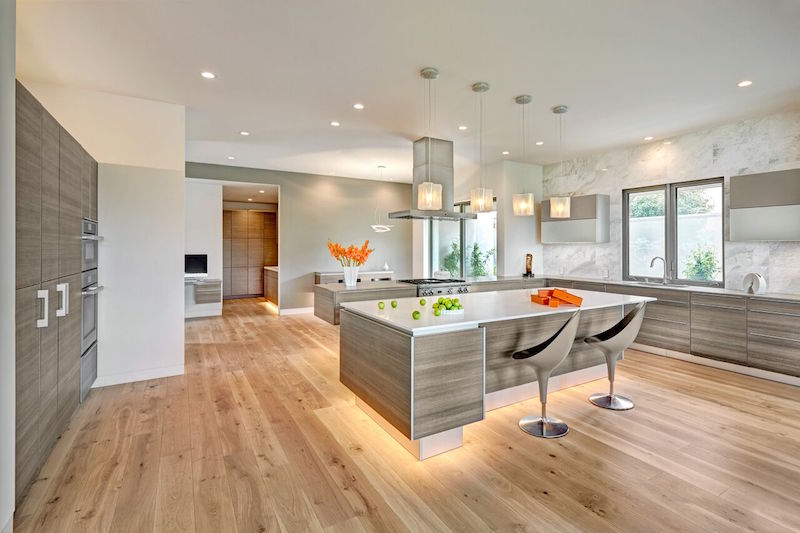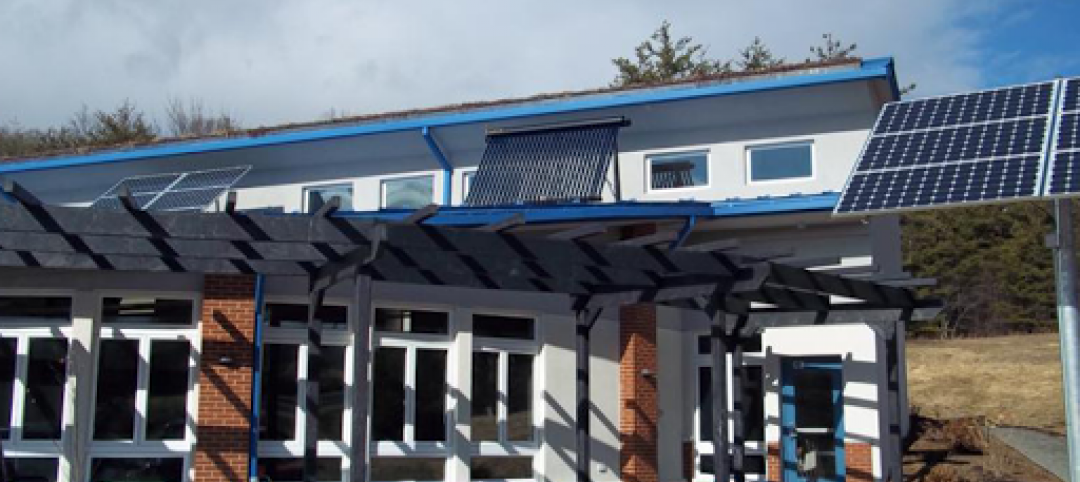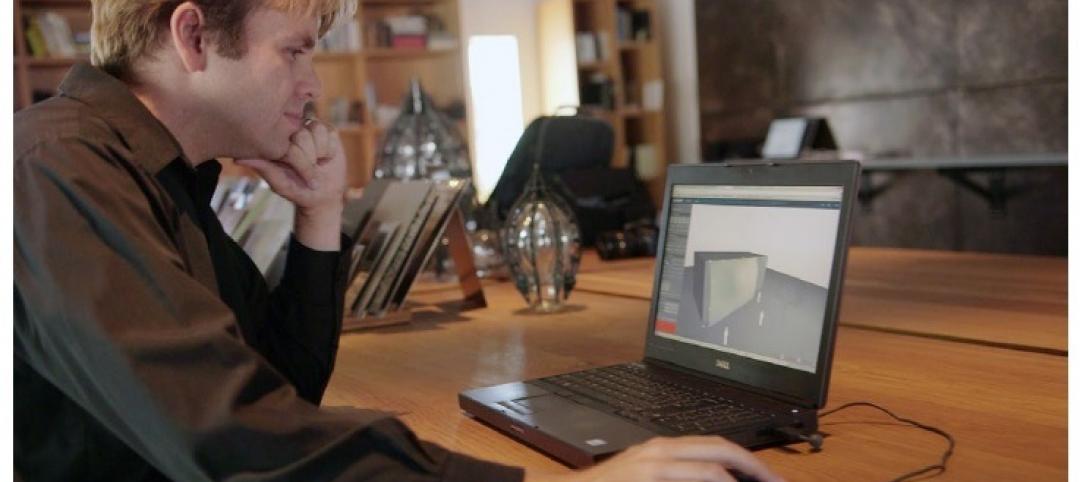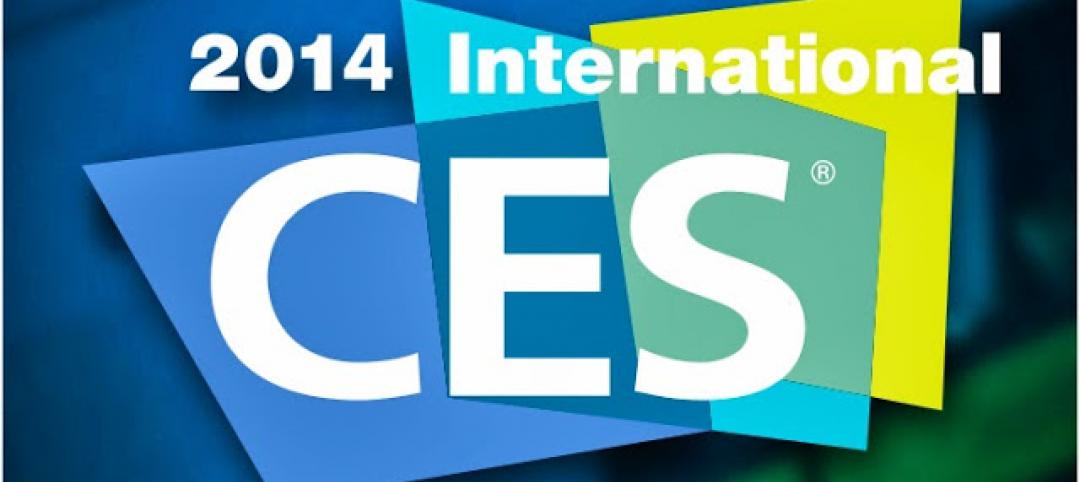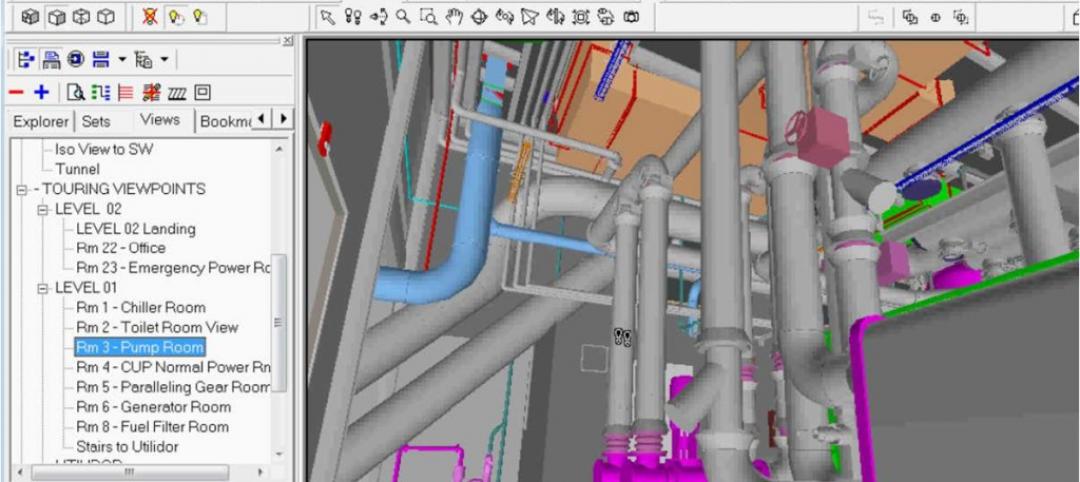The traditional kitchen has lost some of its metaphorical luster in recent years as, according to the 2017 Kitchen & Bath Design Trends Report, contemporary-styled kitchens have overtaken traditional to become the second-most popular North American kitchen design.
According to respondents, in addition to contemporary kitchens surpassing traditional kitchens, two-toned colored kitchens and kitchens equipped with more technology are also two trends currently on the rise.
Based on the survey, the NKBA created a list of the top 10 overall kitchen trends it expects to see for 2017.
- Clean lines, built-ins and simple door styles dominate kitchen designs. Contemporary- styled kitchens overtake Traditional to be the second most popular design after Transitional. Emerging: Industrial and Mid Century Modern. Mountain Modern and Coastal are variations on Contemporary.
- White and gray painted cabinets dominate kitchen color schemes and show no signs of slowing down, especially gray. Blue painted and high gloss cabinets are emerging. For overall color schemes, blue as well as black are emerging.
- Two-toned kitchens are gaining in popularity. Also mixing it up: materials and metals, across surfaces and as accents.
- While wood cabinets dominate kitchen designs, metal --currently a small segment of the cabinet market -- appears to be emerging. Metal cabinets are most frequently specified by younger and male designers.
- Furniture-look pieces, rollouts and pullouts and under cabinet lighting (LED) are among the most popular kitchen cabinet features. Use of crown molding is declining. Rustic and reclaimed woods were frequently mentioned.
- Quartz is the most popular kitchen countertop material, and trending up. Granite, the second most popular countertop material, is trending down.
- Induction cooktops and convection ovens are trending higher, and microwave drawers are outpacing freestanding or built-in microwaves. Steam ovens still represent a small segment of the market, but are also trending higher.
- Use of technology in the kitchen is increasing. About one third of NKBA professionals included wiring and pathways for future tech integration. Also trending upwards: more Internet connected appliances and docking stations.
- Interior barn and pocket doors in kitchens are trending up.
- Accessible and/or universal design features continue to trend up for kitchens.
The report and subsequent trends were generated with information from 562 responses to the 2017 Kitchen & Bath Design Trends survey that was sent out to National Kitchen and Bath Association (NKBA) members in August 2016.
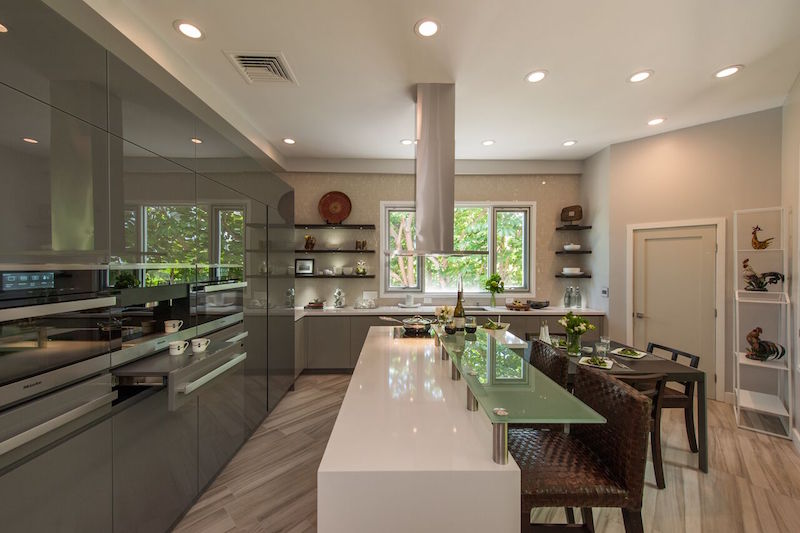 Designer: Dedra Hinano Nahinu, CKD, Inspiration Interiors. Photo: Augie Salbosa.
Designer: Dedra Hinano Nahinu, CKD, Inspiration Interiors. Photo: Augie Salbosa.
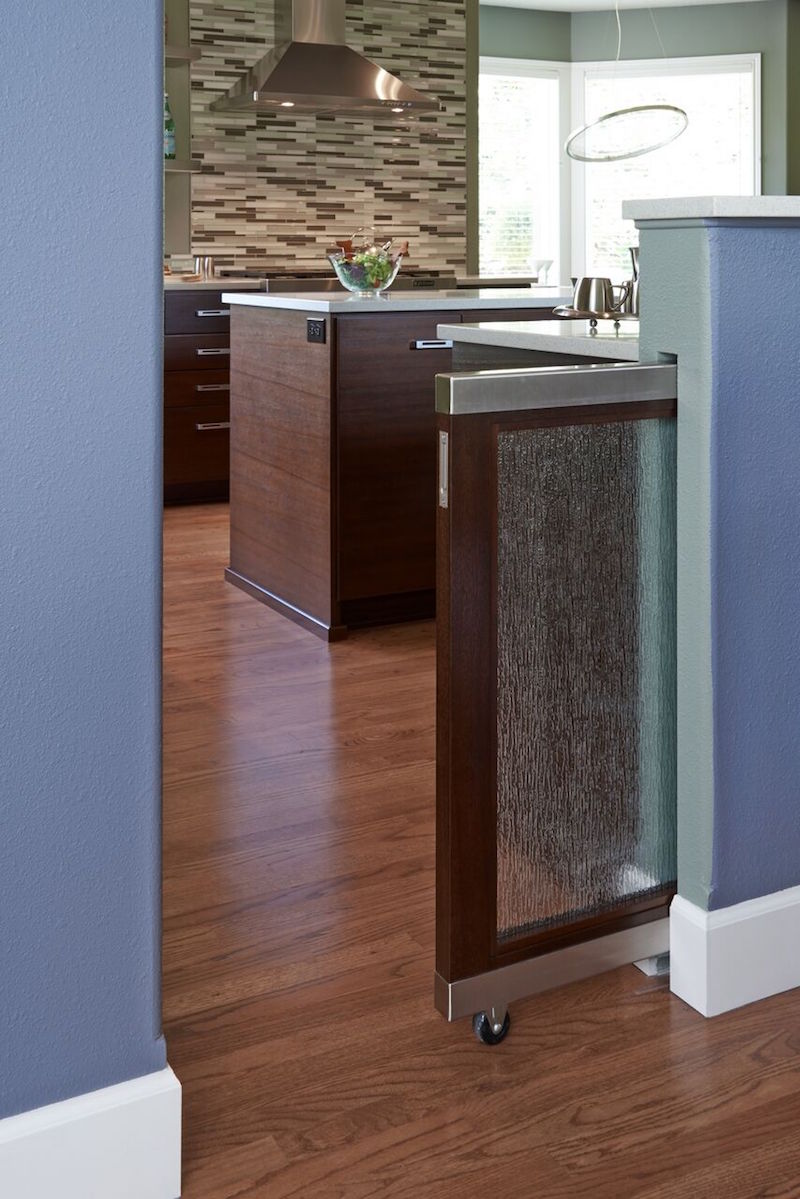 Designer: Robin R. Fisher, CMKBD, CAPS, Robin Rigby Fisher Design. Photo: Dale Lang.
Designer: Robin R. Fisher, CMKBD, CAPS, Robin Rigby Fisher Design. Photo: Dale Lang.
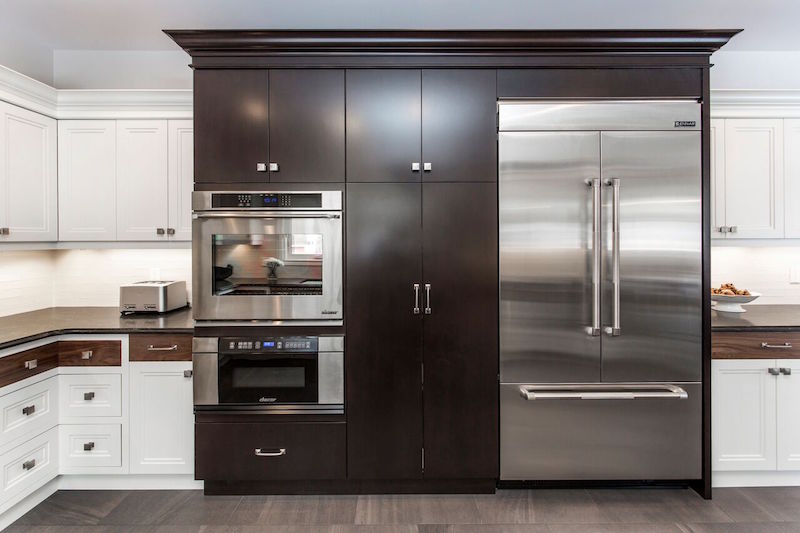 Designer: Cassandra Nordell-MacLean, William Standen Co. Photo: Gerald Mabee.
Designer: Cassandra Nordell-MacLean, William Standen Co. Photo: Gerald Mabee.
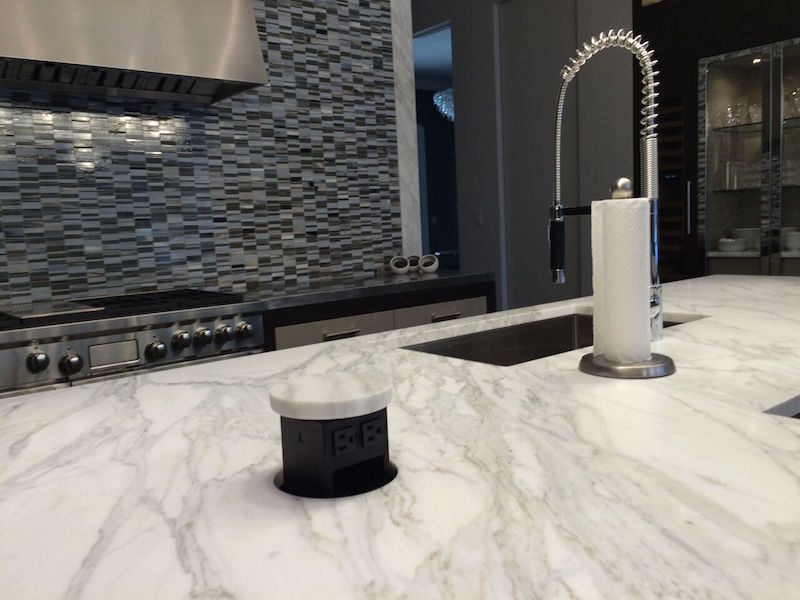 Designer: Leslie Lamarre, CKD, CID, TRG Architecture + Interior Design. Photo: Bernard Andre.
Designer: Leslie Lamarre, CKD, CID, TRG Architecture + Interior Design. Photo: Bernard Andre.
Related Stories
| Jan 15, 2014
6 social media skills every leader needs
The social media revolution—which is less than a decade old—has created a dilemma for senior executives. While its potential seems immense, the inherent risks create uncertainty and unease.
| Jan 15, 2014
Report: 32 U.S. buildings have been verified as net-zero energy performers
The New Buildings Institute's 2014 Getting to Zero Status report includes an interactive map detailing the net-zero energy buildings that have been verified by NBI.
| Jan 14, 2014
Sherwin-Williams unveils colormix 2014
Drawing influence from fashion, science, nature, pop culture and global traditions, Sherwin-Williams introduces colormix™ 2014, which captures colors that inspire creativity and design in today’s world. The four-palette collection provides design professionals with a guide to help them define the moods they want to create and select colors for their projects.
| Jan 13, 2014
Custom exterior fabricator A. Zahner unveils free façade design software for architects
The web-based tool uses the company's factory floor like "a massive rapid prototype machine,” allowing designers to manipulate designs on the fly based on cost and other factors, according to CEO/President Bill Zahner.
| Jan 13, 2014
AEC professionals weigh in on school security
An exclusive survey reveals that Building Teams are doing their part to make the nation’s schools safer in the aftermath of the Sandy Hook tragedy.
| Jan 13, 2014
6 legislative actions to ignite the construction economy
The American Institute of Architects announced its “punch list” for Congress that, if completed, will ignite the construction economy by spurring much needed improvements in energy efficiency, infrastructure, and resiliency, and create jobs for small business.
| Jan 12, 2014
CES showcases innovations: Can any of these help you do your job better?
The Consumer Electronics Show took place this past week in Las Vegas. Known for launching new products and technologies, many of the products showcased there set the bar for future innovators. The show also signals trends to watch in technology applicable to the design and building industry.
| Jan 12, 2014
The ‘fuzz factor’ in engineering: when continuous improvement is neither
The biggest threat to human life in a building isn’t the potential of natural disasters, but the threat of human error. I believe it’s a reality that increases in probability every time a code or standard change is proposed.
| Jan 12, 2014
5 ways virtual modeling can improve facilities management
Improved space management, streamlined maintenance, and economical retrofits are among the ways building owners and facility managers can benefit from building information modeling.
| Jan 11, 2014
Getting to net-zero energy with brick masonry construction [AIA course]
When targeting net-zero energy performance, AEC professionals are advised to tackle energy demand first. This AIA course covers brick masonry's role in reducing energy consumption in buildings.


